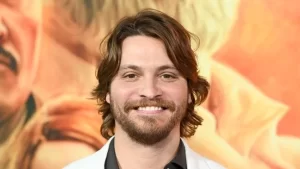0
4 More TV Shows That Should’ve Locked Up Their Entire Cast
When it comes to justice, Yellowstone plays fast and loose. Between land theft, murder cover-ups, livestock agent abuses, and full-on political corruption, the Dutton family pretty much built their empire on felonies. Yet somehow, despite five seasons of relentless law-breaking, most of them walk away free—or worse, admired. If there were ever a case for ending a show with the entire cast locked behind bars, this is it.
But Yellowstone isn’t alone. TV is full of iconic shows where everyone should be in prison. From comedies to prestige dramas, here are four more series where locking up the entire main cast might’ve been the most realistic—and satisfying—ending.
1. Breaking Bad
Crimes committed: Manufacturing meth, murder, terrorism, child endangerment, fraud, extortion, tax evasion, environmental damage.
We love Walter White’s descent into criminal genius, but let’s be honest—by the end, everyone is complicit. Jesse, Skyler, Saul Goodman, even Hank to an extent—they all participate, enable, or cover for Walt. And then there’s the massacre-level body count, not to mention a meth empire that destroys lives across the country.
Sure, Walt dies (spoiler alert), and Jesse drives off. But what about the trail of ruined lives they left behind? Realistically, every single person in that inner circle should’ve faced charges, including money laundering and accessory to multiple murders.
2. Gossip Girl
Crimes committed: Cyberstalking, blackmail, underage drinking, drug distribution, fraud, sexual misconduct, insider trading.
They’re rich, beautiful, and morally bankrupt. The Upper East Side teens of Gossip Girl are essentially white-collar criminals with daddy’s legal team on speed dial. Dan Humphrey literally stalks all of his friends (and his future wife!) for years under the guise of anonymous gossip blogging—and somehow, they forgive him?
Chuck Bass tries to assault multiple women in Season 1, Blair orchestrates public humiliations weekly, and Serena… well, she kills someone, leaves town, and pretends it never happened. These are not “slightly flawed protagonists”—they’re sociopaths. Justice for everyone else on the show would’ve been a mass arrest at graduation.
3. It’s Always Sunny in Philadelphia
Crimes committed: Arson, assault, identity theft, grave robbing, kidnapping, insurance fraud, animal cruelty, public indecency.
The gang at Paddy’s Pub has done literally everything illegal short of organized genocide—and they probably tried that offscreen. From pretending to be dead for insurance money, to burning down apartment buildings, to selling alcohol to minors, they are textbook felons. And they’re proud of it.
By Season 16, locking them up would feel less like punishment and more like the natural endpoint of their deranged logic. In fact, the only unrealistic part of this show is that no one’s gone to jail yet. Give us a final season set entirely in prison—with Mac trying to start a cult and Dee fighting over bunk beds.
4. Euphoria
Crimes committed: Drug dealing, sexual assault, revenge porn, illegal gun ownership, police obstruction, attempted murder.
Yes, Euphoria is meant to be messy. But Zendaya’s Rue and the rest of the cast have racked up enough charges to shut down a cartel. Fezco alone could be doing life for narcotics distribution and obstruction. Nate’s got a digital vault full of revenge porn and a record of violence. Cassie and Maddy? Brawling at school events. And let’s not forget Rue’s wild suitcase theft or Lexi staging an unlicensed, wildly defamatory play.
The whole show runs like a cautionary tale from a DA’s office—and none of these teens would get off with just detention. A lockdown finale might’ve actually been the most realistic ending of all.
Bonus Mention: Succession
Crimes committed: Insider trading, bribery, perjury, covering up sexual abuse, money laundering, general corporate malfeasance.
No, the Roy family didn’t stab anyone in a train station, but they’re arguably worse. They manipulate entire industries, elections, and legal systems for their own gain. Whether it’s Logan’s decades of abuse coverups or Kendall’s literal hit-and-run in Season 1, there’s enough to put every shareholder and executive in Waystar Royco behind bars for life.
Yet, they end up richer than ever. It’s the American way… but man, wouldn’t a RICO trial have been satisfying?